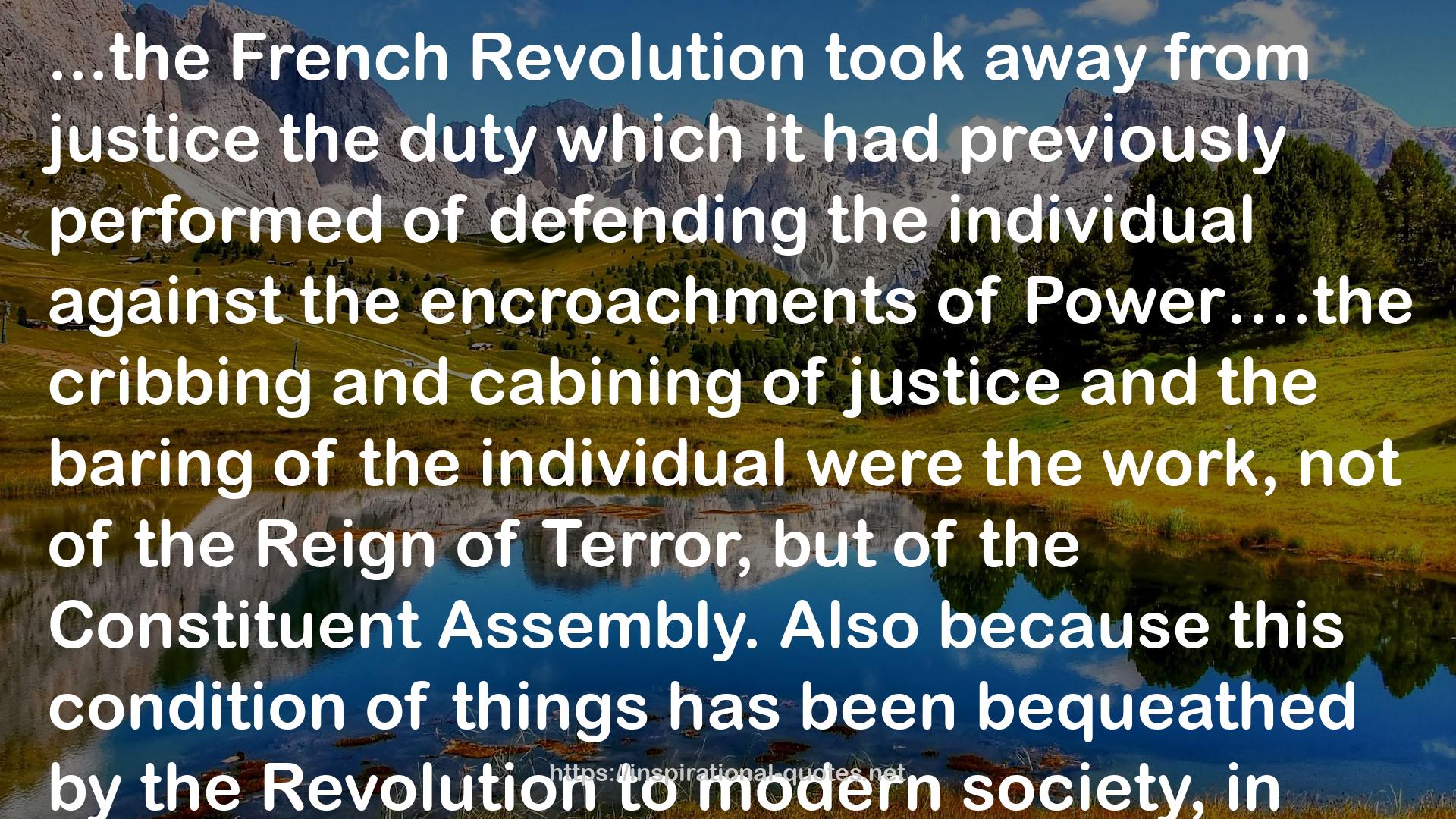" ...the French Revolution took away from justice the duty which it had previously performed of defending the individual against the encroachments of Power….the cribbing and cabining of justice and the baring of the individual were the work, not of the Reign of Terror, but of the Constituent Assembly. Also because this condition of things has been bequeathed by the Revolution to modern society, in which these principles are still in action.
Just as the Revolution crushed any bodies whose authority was capable of limiting that of the state, so it deprived the individual of every constitutional means of making his right previal against that of the state. It worked for the absolutism of Power.
The Russian Revolution offers the same contrast, but still more pronounced, between the liberty promised and the authority realized. It was not any particular Power, but Power itself, which was denounced and damned by the school of Marx and Engels, with a vigour nearly equal to that of the anarchists. In a justly celebrated pamphlet Lenin asserted that the Revolution must “concentrate all it forces against the might of the state; its task is not to improve the governmental machine but to destroy it and blot it out. "
― Bertrand De Jouvenel , On Power: The Natural History of Its Growth
